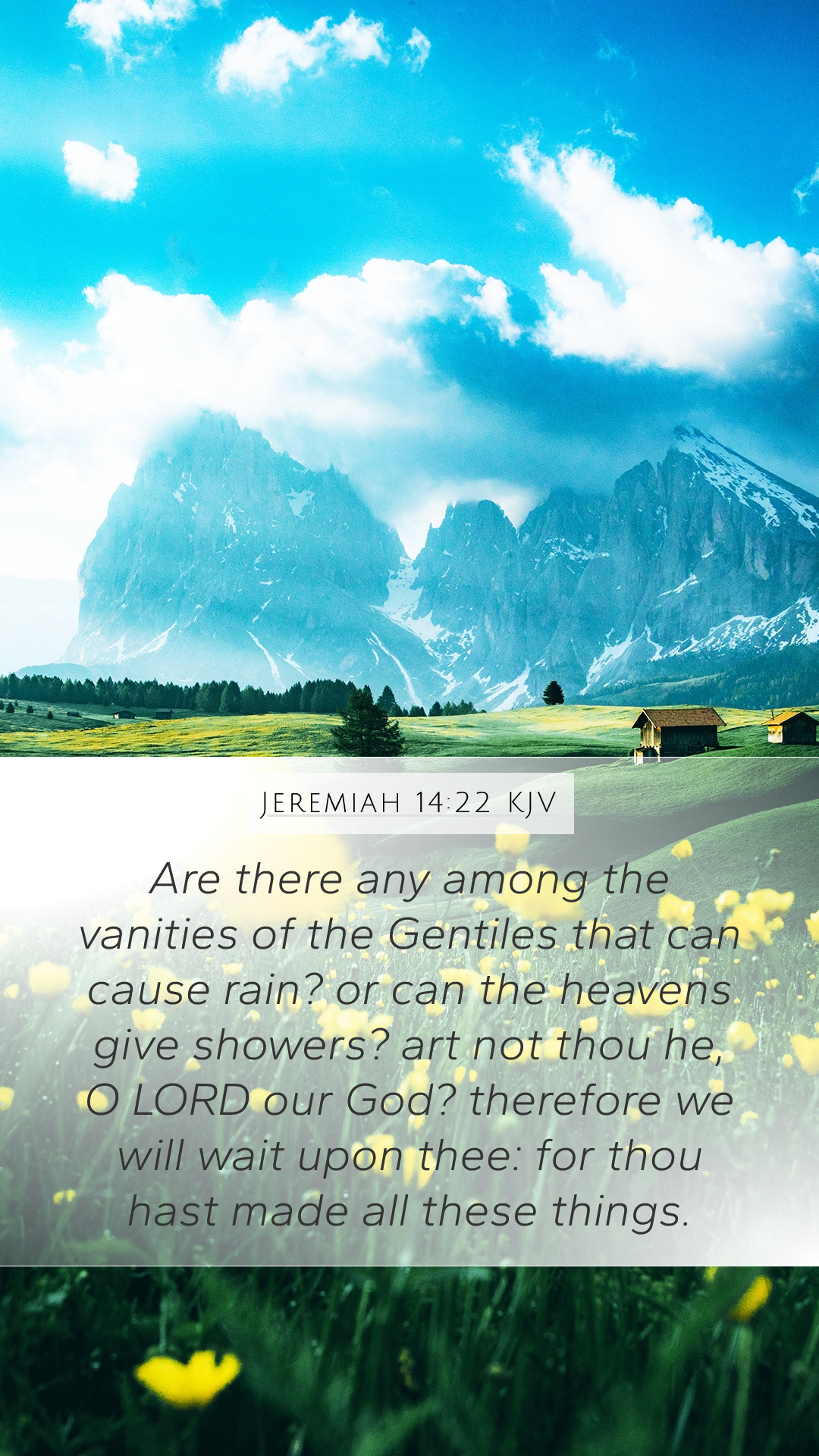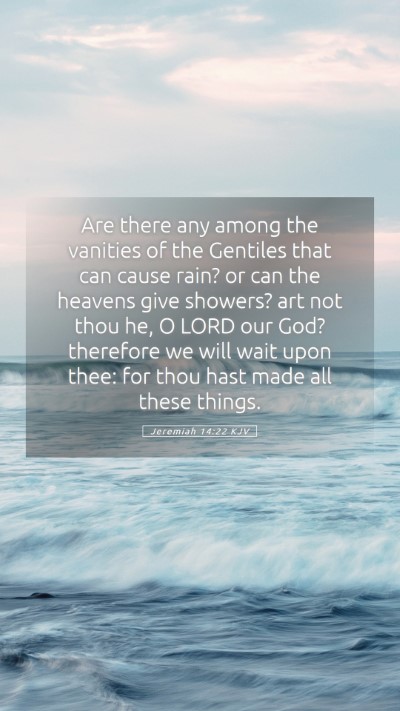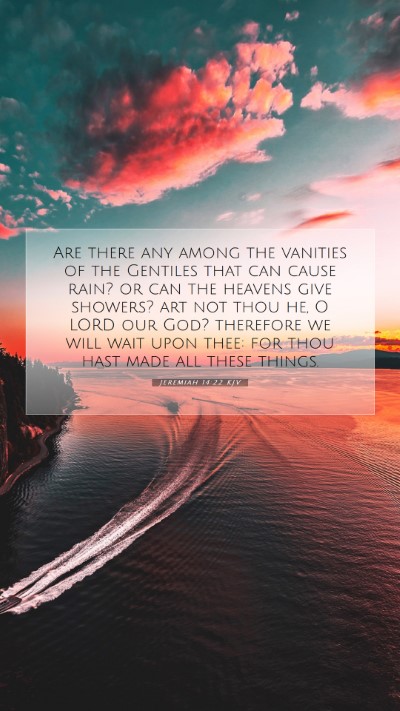Understanding Jeremiah 14:22 - A Comprehensive Bible Verse Commentary
Verse: "Are there any among the vanities of the Gentiles that can cause rain? or can the heavens give showers? art not thou he, O Lord our God? therefore we will wait upon thee: for thou hast made all these things." - Jeremiah 14:22 (KJV)
Meaning of Jeremiah 14:22
This verse encapsulates a moment of deep reflection and acknowledgment of God's sovereignty in contrast to the powerless idols of the nations. The prophet Jeremiah, speaking on behalf of the people, raises a rhetorical question about the inability of foreign gods to provide rain, highlighting their impotence. This verse is crucial for understanding how the faithful are called to rely solely on God for provision and intervention.
Insights from Public Domain Commentaries
- Matthew Henry: In his commentary, Henry emphasizes the futility of idol worship and the necessity of recognizing God as the sole source of blessing. He indicates that the people are aware that only the Lord can provide the much-needed rain during a time of drought, reinforcing that real reliance must be placed in Him rather than in false deities.
- Albert Barnes: Barnes notes the context of desperation amongst the Israelites due to a severe drought. He explains that the question posed is not merely rhetorical but points to a realization of God's unique power over nature. The call to "wait upon thee" reveals a posture of faith, urging believers to trust in God's timing and provision rather than seeking help from non-existent gods.
- Adam Clarke: Clarke offers a deeper exploration of the theological implications of the verse, discussing the importance of understanding God’s role as the Creator. He points out that the heavens and nature's laws do not operate independently of God's will, which emphasizes the need for believers to seek divine intervention in times of crisis. He reiterates the importance of prayer and faith in God to meet their needs.
Key Themes in Jeremiah 14:22
This verse brings forth several themes and lessons:
- The Sovereignty of God: It underscores God's ultimate authority over creation, particularly in controlling the weather and natural processes.
- The Futility of Idolatry: The contrast between the living God and the vanity of idols emphasizes the worthlessness of any entity that cannot act.
- Trust and Patience: The call to wait upon the Lord reflects a dynamic of faith that is essential for any believer awaiting divine assistance.
Application of Jeremiah 14:22 in Daily Life
This passage can be especially relevant for believers today as they navigate the challenges of life. Here are some applications:
- Recognize areas where one might be placing trust in non-spiritual entities and redirect that trust back to God.
- Practice patience in prayer, understanding that God has a perfect timing for all things.
- Encourage oneself and others in faith-based communities to acknowledge God's power in difficult situations, fostering an atmosphere of reliance upon His strength.
Cross References
Jeremiah 14:22 connects with several other Biblical passages that reinforce the themes of reliance on God and the futility of idols:
- Psalms 115:4-8: Highlights the impotence of idols compared to the living God.
- James 1:17: Reaffirms that all good gifts come from God above, emphasizing His role as the provider.
- 1 Kings 18:21: The challenge presented by Elijah to the people about choosing between God and Baal serves as a reminder of the decision to trust the true God.
Conclusion
Jeremiah 14:22 serves as a powerful reminder to believers about the nature of God as the ultimate provider and the futility of placing trust in anything or anyone else. Through the insights gained from historical context, theological reflections, and practical applications, one can deepen their understanding of this verse and its relevance for daily living. A deeper Bible verse understanding enriches personal faith and community interactions, leading to a life grounded in truth and reliance on God.


